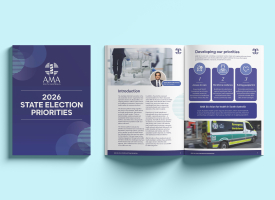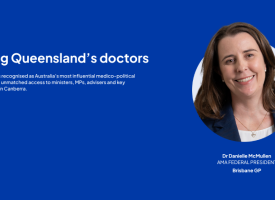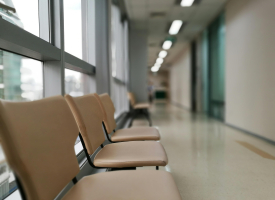Plan needed to tackle big backlog of essential operations
The Australian Medical Association (AMA) and the Royal Australasian College of Surgeons (RACS) are calling on all levels of Government to develop a national plan to address the growing and increasingly critical backlog of elective surgeries.

The call comes as new Australian Institute of Health and Welfare (AIHW) data shows Australians are waiting longer than ever for essential surgery, across a range of categories and conditions.
For example, the proportion of patients waiting more than a year for knee replacement surgery tripled from 11 per cent to 32 per cent, in just the last two years.
While the AMA and RACS have both supported state government postponement of some elective surgeries to prevent the COVID surge from overwhelming public hospitals, this approach is increasingly unsustainable. An urgent plan is needed to restore reasonable and acceptable access to elective surgery, as well as a long-term funding arrangement to ensure this backlog is cleared.
“Two years into the pandemic and with a highly vaccinated population means that blanket suspensions of elective surgery should be only used as a last resort. The fact that these are still happening points to the failure of Governments to properly invest in public hospital capacity, as well as a failure to undertake the necessary planning needed to avoid this outcome,” said AMA President, Dr Omar Khorshid.
RACS President Dr Sally Langley said, “Elective surgery is not an optional procedure that a patient or doctor elects to have – it is essential surgery. It is surgery to address often life-threatening conditions and conditions that prevent patients from living a normal life because of severe pain or dysfunction.”
“For many patients waiting in line in pain to have a critical operation, the delays in surgery can be devastating. Further, the lack of screening procedures has resulted in patients presenting with more advanced cancers, and in some cases, it has dramatically altered their prognosis,” she said.
In the immediate term, both the AMA and RACS are calling for an urgent plan for the resumption of elective surgery as a priority in both private and public hospitals, so that surgeons and their teams can start catching up on operations that have been missed. There is unused capacity in private hospitals in particular and these facilities should be brought back online for routine elective surgery as soon as possible.
“We need to see a funded plan from state/territory and federal governments for clearing these backlogs and properly supporting our public hospitals. It then needs to be backed by real, long-term funding commitments that deliver permanent, expanded capacity in our public hospital system," Dr Khorshid said.
“And while the private sector can play a role in helping to address public sector waiting lists in the short-term where they have spare capacity, this needs to be done in a way that does not simply displace private patients from accessing care or impact on the training of specialist trainees.
“One-off funding packages and elective surgery blitzes will not be enough to address the impact that the last two years have had on our already stressed health system and its capacity to deliver care for our patients into the future,” Dr Khorshid said.
Dr Khorshid said that this backlog is actually much larger than these numbers show.
“The figures this week are just the tip of the iceberg. As a result of the pandemic there has also been a reduction of specialist out-patient appointments, as well as limits on access to general practitioners meaning that people may not have seen their GP for an initial referral. The longer we wait to act on essential surgery, the sicker Australians will become, and the more expensive their care will be,” Dr Khorshid said.
“Australia needs immediate action and an enduring solution to elective surgery waiting lists – otherwise our hospitals and our patients will only continue to deteriorate.”



